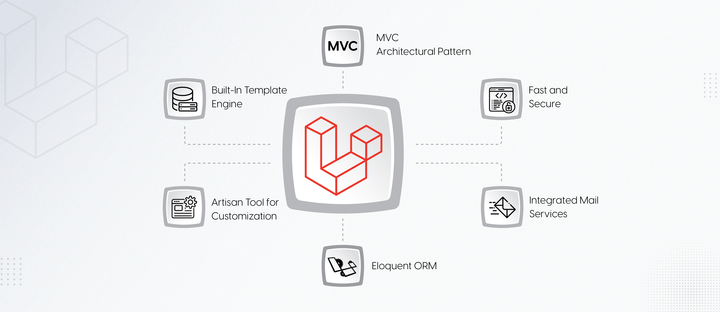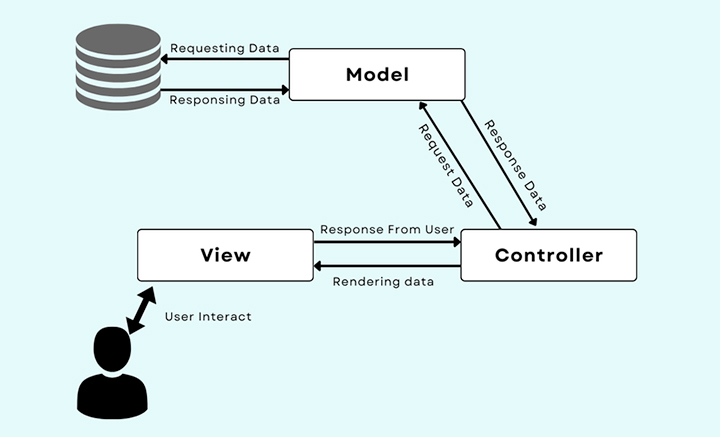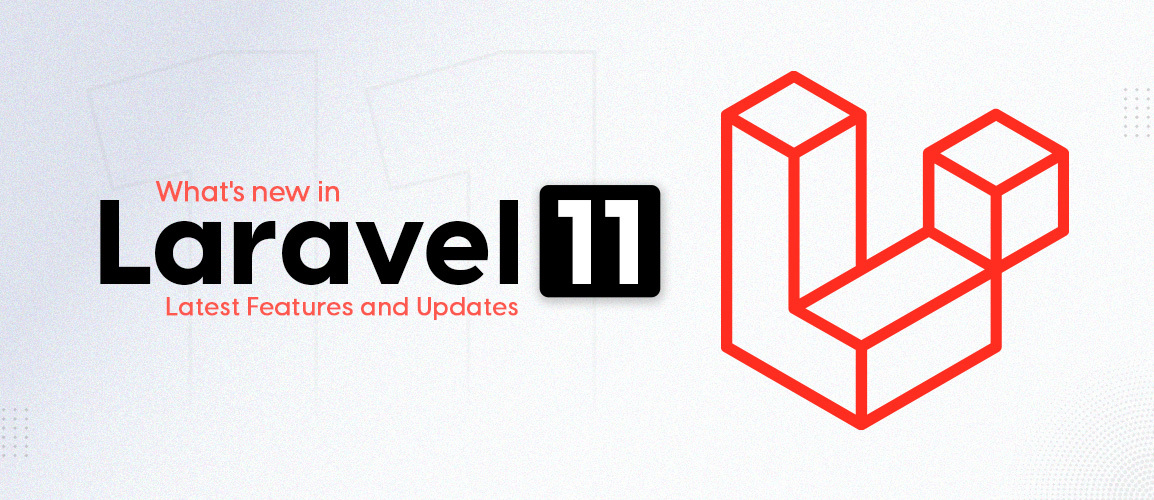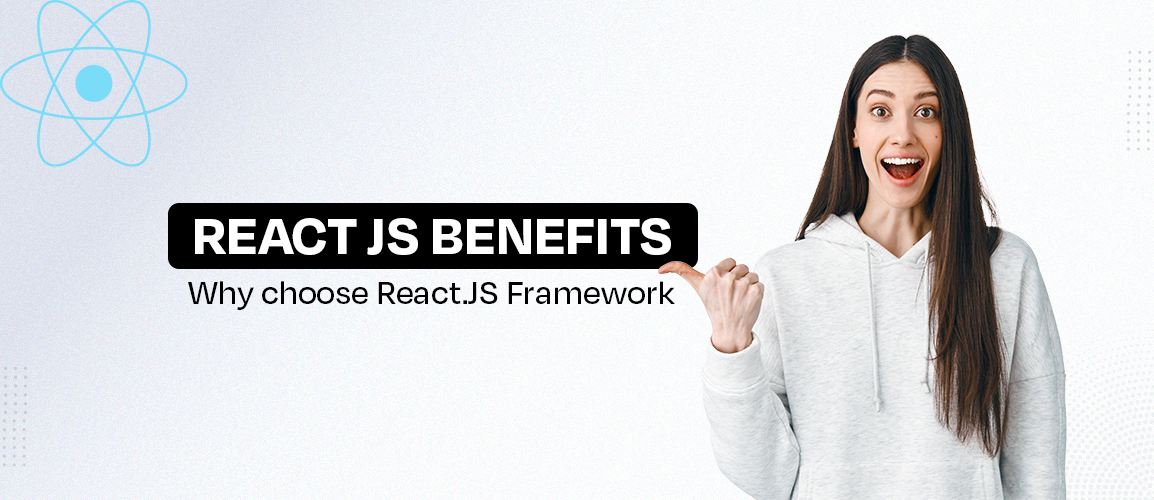Introduction
In this evolving development and programming world, new tech-stacks are continuously increasing its standard. But few technologies exist where innovation meets efficiency in web development and Laravel development is the best example of it. In this article of Laravel Development: The Complete Guide, we'll explore Laravel development.
Laravel has become a game-changer technology in web development, whether it is the syntax, features or developer-friendly environment. As we dig into the complete laravel development guide we’ll reveal the secret hidden behind the Laravel.
Image Source: Javapoint
What is Laravel Framework in PHP?
On June 9, 2011, Laravel framework was created by Taylor Otwell, a free open-source PHP-based web framework which means that it is free to use and modify. Laravel development follows the MVC(model–view–controller) architecture pattern and is based on Symfony. Laravel framework is a full-stack framework that means it includes both front-end and back-end development tools.
Some Statistics of Laravel Framework
- There are 686,465 live websites using Laravel framework. (Source)
- There are 1,102,987 that have used the Laravel framework in the past. (Source)
- Laravel Customers top geographies statistics of Laravel framework are the United States with 27,614(36.63%), India with 10,488(13.91%), United Kingdom with 9,004(11.94%) customers respectively. German with 3224(4.85%) customers of Laravel framework.
Image Source: 6sense
Image Source: aglowiditsolutions
Top Features of Laravel Framework
Laravel Follows MVC Architectural Pattern
The first and best advantages of using the Laravel framework is that it supports the MVC(Model-View-Controller)architectural pattern and is featured with rich syntax which makes it object-oriented.
Image Source: Geeksforgeeks
So what is MVC architecture pattern and how does it help in custom web application development? So the catch is all the data logic is controlled by the MVC model. It means the controller will control all the data flow and view displays the data to the user. MVC model helps you to streamline your coding structure which helps in handling the large projects dealing with unstructured code.
Built-In Template Engine (Blade)
Laravel framework features a powerful and intuitive built-in template engine known as Blade. So what is Blade in the Laravel framework? Blade is designed to simplify the process of creating views in Laravel. It combines a simple, yet flexible syntax with a set of features that enhance the development of dynamic and data-driven web applications. Apart from this it offers many different widgets, including CSS and JS code.
Ensures Security & Authentication
In Laravel development, security is on top priority, and the framework offers robust solutions for authentication and authorization to safeguard web applications. Laravel prioritizes security with features like automatic Cross-Site Scripting (XSS) protection in Blade templates and built-in Cross-Site Request Forgery (CSRF) protection. The framework uses secure password hashing, guards against SQL injection with Eloquent ORM. Laravel helps the programmers to build secure web applications through integrated security measures, a safe authentication system, and advanced authorization features.
Symphony - Integrated Mail Services
Laravel framework seamlessly integrates with the SwiftMailer library, which is a part of the Symfony components. This integration helps Laravel developers to manage email services within their applications. SwiftMailer is a robust, flexible, and feature-rich mailing solution that easily integrates with Laravel, making email management smooth. With the help of Laravel's clean and easy syntax, sending emails becomes very effortless. Laravel developers can use the built-in Mail to draft emails using simple and readable code. It also allows drafting text and HTML emails, as well as the attaching files. Laravel's email services also allow for customization and the use of views, enabling developers to create dynamic and visually appealing email templates.
Customization Using Artisan Tool
At the heart of Laravel's command-line interface lies Artisan, a feature rich tool designed to improve the development. Artisan offers a wide array of commands that automate repetitive tasks and boost productivity. Artisan simplifies the creation of boilerplate code with commands like make:controller, make:model, and make:migration which accelerates the development process. Managing database schemas becomes easy with Artisan's migrate command. It allows developers to easily develop the database structure, roll back changes, and maintain version control. Artisan supports database seeding through the db:seed command, enabling developers to populate databases with sample or default data for testing and development. Laravel's task scheduler, powered by Artisan commands, automates the execution of recurring tasks. This is invaluable for activities such as sending emails, running maintenance routines, etc.
Offers Eloquent ORM
Eloquent ORM (Object-Relational Mapping) is an intuitive database management system integrated into the Laravel framework. It offers syntax for interacting with databases using object-oriented conventions, making database operations in Laravel more intuitive and developer-friendly. Eloquent ORM in Laravel is a feature-rich and developer-friendly tool that simplifies database interactions by providing syntax, supporting relationships, and integrating with Laravel's overall architecture.
Additional Advantages of Laravel Framework:
- Large community for open source.
- Seamless exception handling.
- Easy cache integration.
- Automated unit testing tool.
- Made up of modular libraries.
- Routing is very customizable in Laravel.
- Smooth and excellent performance.
Disadvantages Of Laravel Development
As discussed above, Laravel framework is a widely-used PHP framework, like any technology, it comes with its own set of potential disadvantages. Here are some aspects that may be considered as drawbacks:
- Laravel's extensive features and conventions, while powerful, might create a hard learning curve for beginners or developers new to MVC frameworks.
- Some developers debate that Laravel introduces a performance overhead compared to leaner micro-frameworks, especially in scenarios where raw performance is a critical consideration.
- Laravel relies on implicit methods and conventions, which might be seen as "magic" for developers who prefer explicit configurations and more control over their code.
- Laravel heavily depends on Composer for package management. While Composer is a tool where some developers might prefer frameworks with fewer external dependencies.
- Laravel's rich feature set, including Eloquent ORM and Artisan commands, can lead to overhead in smaller projects where a simpler framework might be more appropriate.
- The extensive Laravel ecosystem may be very large for developers who prefer a more simple/basic approach or have a preference for specific tools that may not be as readily available.
- Laravel framework has a regular release cycle with updates and improvements. For projects with specific version requirements or limited resources for frequent updates, this could pose challenges.
Note: These disadvantages are subjective and may vary based on individual preferences, project requirements, and the experience level of the development team. Laravel continues to be a popular and powerful framework for many developers and businesses, and its benefits often outweigh these potential drawbacks.
Why Hire Laravel Developers?
Hire Laravel developers that offers several advantages for businesses looking to build robust, scalable, and secure web applications. They bring expertise in a framework that combines speed, efficiency, security, and a large community. Whether for web applications, APIs, or enterprise-level projects, Laravel developers can contribute to the success and quality of your software development.
Hiring Laravel developers brings a range of benefits, including:
- Rapid Development
- Scalability and Security
- Cost-Effectiveness
- Rich Ecosystem and Versatility
- Extensive Ecosystem
- Easy Maintenance and Testing
- Community Support and Continuous Development
Factors/Skills to consider when you hire Laravel developers
Hiring Laravel developers is a crucial decision that requires consideration of various factors/skills to ensure you build a skilled team. Here are key skills/factors to keep in mind:
Experience and Expertise:
Look for developers with proven experience in Laravel development. Check their portfolios and assess the complexity and diversity of projects they have worked on. Also consider the years of experience they have dedicated to Laravel development.
Technical Skills:
Ensure that Laravel developers have a strong grip on PHP, Laravel, and related tech-stacks. Evaluate their knowledge of Laravel features, Eloquent ORM, Blade templating, and other Laravel-specific functionalities.
Portfolio and Projects:
Review the developer's portfolio and test the types of projects they have completed. A diverse portfolio showcasing different types of web applications demonstrates adaptability and versatility of the developer.
Problem-Solving Ability:
Laravel developers should be adept problem solvers. Evaluate their ability to troubleshoot issues, optimize code, and find efficient solutions. Pose real-world scenarios or coding challenges during the hiring process.
Communication Skills:
Effective communication is important for collaboration. Assess developer's communication skills, including their ability to suggest ideas, provide updates, and understand project requirements. Clear communication helps avoid misunderstandings and ensures smooth teamwork.
Testing and Quality Assurance:
Laravel features testing, and developers should be well aware in writing unit tests using PHPUnit. Ask about their approach to testing, their experience in test-driven development (TDD) and their understanding of quality assurance.
Problem-Solving Scenarios:
During the interview process, question real-world scenarios or challenges relevant to Laravel development. Test how candidates approach problem-solving, their analytical skills, and their ability to make informed decisions.
Reviews and Ratings:
Check reviews from previous clients and employers. Additionally, review online platforms for feedback and reviews about the developer's work. This provides insights into their professional behaviour and the quality of their developments.
Conclusion
Therefore, after reading the complete guide, if anyone is looking for developing highly functional web applications using Laravel framework will take a wise decision. Due to continual upgrades in its features, many mid-level and large businesses will look at laravel as the best PHP framework available for web application development. Also check laravel tutorials to connect with the experts those are good community to learn and share your ideas.
If you are looking for a web development company that specializes in Laravel and PHP development, NITSAN is the perfect choice for any website, web app or custom software requirement.
Happy Reading.










Comments and Responses